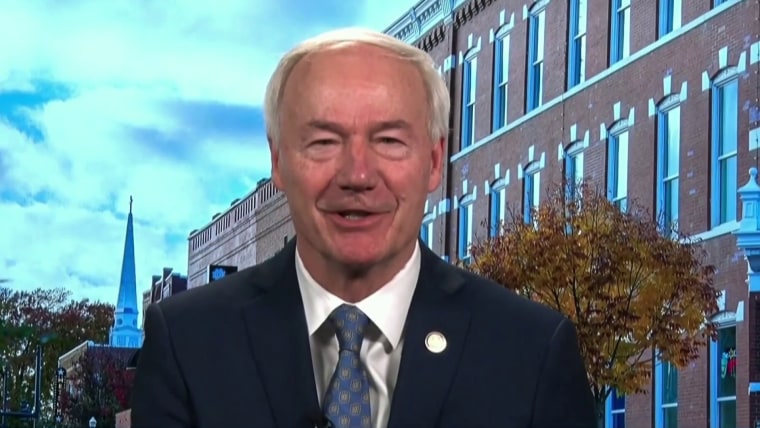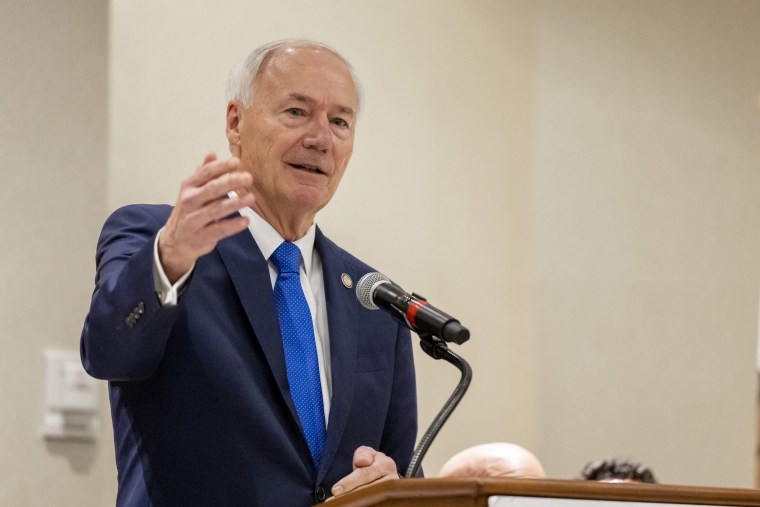Republican presidential hopeful and former Arkansas Gov. Asa Hutchinson wouldn't comment during a Friday interview about the two Tennessee Democratic lawmakers expelled for their participation in a gun control protest following last month's Nashville school shooting.
“I don’t think that every national leader needs to comment on what’s happening in Tennessee,” Hutchinson told Meet the Press NOW. “If it becomes a national issue and concern, yes, but I view this as something that is a Tennessee legislative issue."
"I just can’t judge right now. If I had to, I’ll look at all the tapes and if it’s the right time, I might make a judgment on it. But I think it’s inappropriate for me to second guess what happened in Tennessee at this point," he said.
The former governor also pointed to his response to the protests surrounding the murder of George Floyd in 2020, noting that he worked with protest leaders and law enforcement by convening a task force. "It was a very productive thing that led to action," he said, "Listening to each other is critically important."

Hutchinson said it is important for Americans to listen to each other and find common ground on issues, calling on his own party to find a nominee in 2024 who can appeal to independents and suburban voters.
Asked about gerrymandering's effect on partisan polarization, Hutchinson said that both parties have "tried to protect incumbents to a great extent."
"We’ve tried to make red districts more red and blue districts more blue. Both sides have played that game," he said, adding that the practice "really changes your ability to work together because you're constantly appealing more to the base versus worrying about getting votes in the general election."
Hutchinson said it can be difficult to bridge the gap on issues like abortion access, which he believes should ultimately remain up to the states.
"I believe that the states is what we fought for for years, it ought to come back to them. I think that's helpful for our states to be able to make that determination even though they might be different. It reflects the will of the people on the most serious health care issues," he said.
